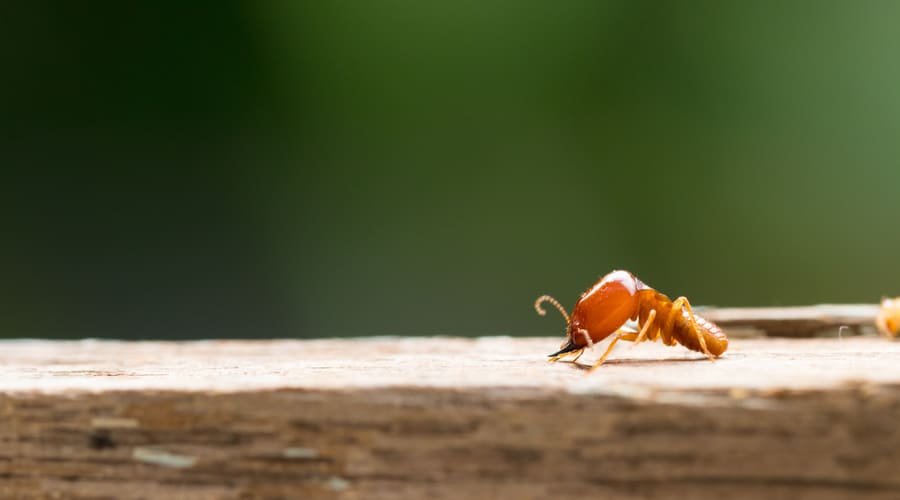Many homes, especially in urban and suburban settings, frequently deal with mouse infestations, particularly when it’s the winter. Mice enter houses and garages throughout the colder months in search of food and a warm location to make their nests. Even while these little rodents are cute, fluffy, and small, they have the potential to carry illness, contaminate food, and damage property. This post will go over five essential tips to help you keep mice out of your house and prevent rats from entering.
In homes where mice infestations have become a persistent issue, seeking professional pest control services for mice removal is often the most effective solution. Pest control experts are trained to assess the extent of the infestation, identify entry points, and implement targeted strategies to eliminate mice from the premises. Using a combination of traps, baits, and safe and humane removal methods, pest control professionals can effectively eradicate mice populations while minimizing the risk of harm to occupants and pets.
Furthermore, pest control services for mice removal typically include preventative measures to deter future infestations. This may involve sealing entry points, such as gaps in walls, doors, and windows, to prevent mice from gaining access to the home. Additionally, pest control experts may provide recommendations for maintaining cleanliness and hygiene in and around the home, as well as implementing measures to eliminate potential food sources and nesting sites. By taking proactive steps to address the root causes of mouse infestations, homeowners can enjoy a pest-free environment and peace of mind year-round.
How to Know If You Have Mice
It can be challenging to identify mouse activity before a serious infestation occurs.
Symptoms may include:
· Little, black droppings about the size of rice grains
· Chewed holes in food and pet food containers, bags, and cartons
· Scratches left by grease on walls, floors, and skirting boards
· Gnaw symbols
· Nests with pieces of wood or shredded paper inside are frequently discovered beneath cupboards, behind refrigerators, and in other isolated, dark areas.
· A strong ammonia scent emanating from the mice’s feces
How to Mouse-Proof Your House
Block Any Possible Entry Points
Mice can squeeze through minuscule openings as small as 6 mm! It is imperative to seal off any gaps or crevices that rodents can utilize to get into your house. As easy as putting wire wool into a crevice or placing a brick in front of an abandoned pipe could do this. It may be necessary to cover bigger access points with sheet metal or mesh that has extremely tiny holes (about 5mm). Use an excluder or a bristle strip to seal any holes beneath the door. Remember to make sure your doors and windows create a tight seal! Caulk can be used to seal minor openings.
Maintain Cleanliness
Homes with accessible food and shelter are magnets for mice. To deter these rodents, keep your home clean and eliminate potential food sources. Start with a pristine kitchen, free of spills and crumbs. Regularly sweep floors and wipe countertops to remove food residue. Store food in airtight containers, including pet food, and dispose of waste promptly in tightly sealed bins. Extend cleanliness efforts beyond the kitchen to storage areas like closets and basements. Regular decluttering and storing items in sealed containers prevent mice from finding hiding spots or nesting materials.
Eliminate Water Sources
Mice need water as well as food to survive. Reduce water availability around your home to discourage them from entering. Quickly fix any leaks in appliances, faucets, or plumbing. Check for places where water might accumulate indoors, such as around sinks and appliances. Ensure proper drainage to prevent water from pooling near your home’s foundation. Regularly clean gutters to maintain proper water flow away from your house. Eliminate standing water in your yard by storing hoses upside down and emptying trays under plants and bird baths. You may lessen your home’s attraction to mice and lessen the chance of infestation by restricting access to water.
Set Mouse Traps
One of the best ways to get rid of mice that have moved into your home is to use mouse traps. Place mouse traps in the more vulnerable areas of your house, like along walls and behind trash cans. A large variety of mouse traps are available, varying in terms of cost, features, and design.
Select from the top varieties of mouse traps listed below:
Snap traps: This well-liked quick-trigger mechanism immobilizes mice. Snap traps are an effective technique to eradicate an entire population of mice because, when set properly, they kill mice swiftly. A Snap traps come in several varieties, such as bar, clam, and hidden kill.
Electromagnets: These mouse traps employ electric shocks to kill mice after luring them inside the chamber. They are designed primarily to keep pets and people from being shocked.
Every mouse trap needs bait of some form, and the most popular kind is peanut butter, but you may also use chocolate, cheese, almonds, or birdseed to entice mice into the trap.
Use Smells or Deterrents
Mice are very sensitive to scents, so using substances that have a very strong smell is a good way to deter mice. You can also use deterrents; natural deterrents such as peppermint oil or mothballs can be effective at repelling mice. Soak cotton balls in peppermint oil and place them in areas where mice are likely to enter your home. Such as near entry points or along baseboards. The strong scent of peppermint is unpleasant for mice and can deter them from entering your home.
Mothballs can also be used as a deterrent, although they should be used with caution due to their toxicity. Place mothballs in areas where mice are active, such as in attics, basements, or crawl spaces. Keep in mind that mothballs should be used sparingly and kept out of reach of children and pets.
Conclusion
Mice can spread diseases, so act quickly. The longer you wait to contain an invasion, the more difficult it is due to their rapid rate of reproduction. It takes a combination of preventive steps and routine maintenance to prevent mouse infestations. Make sure your house is mouse-free as soon as possible by using traps and deterrents. Applying the tips in this article will help protect your house and family from the potential dangers of a mouse infestation.





